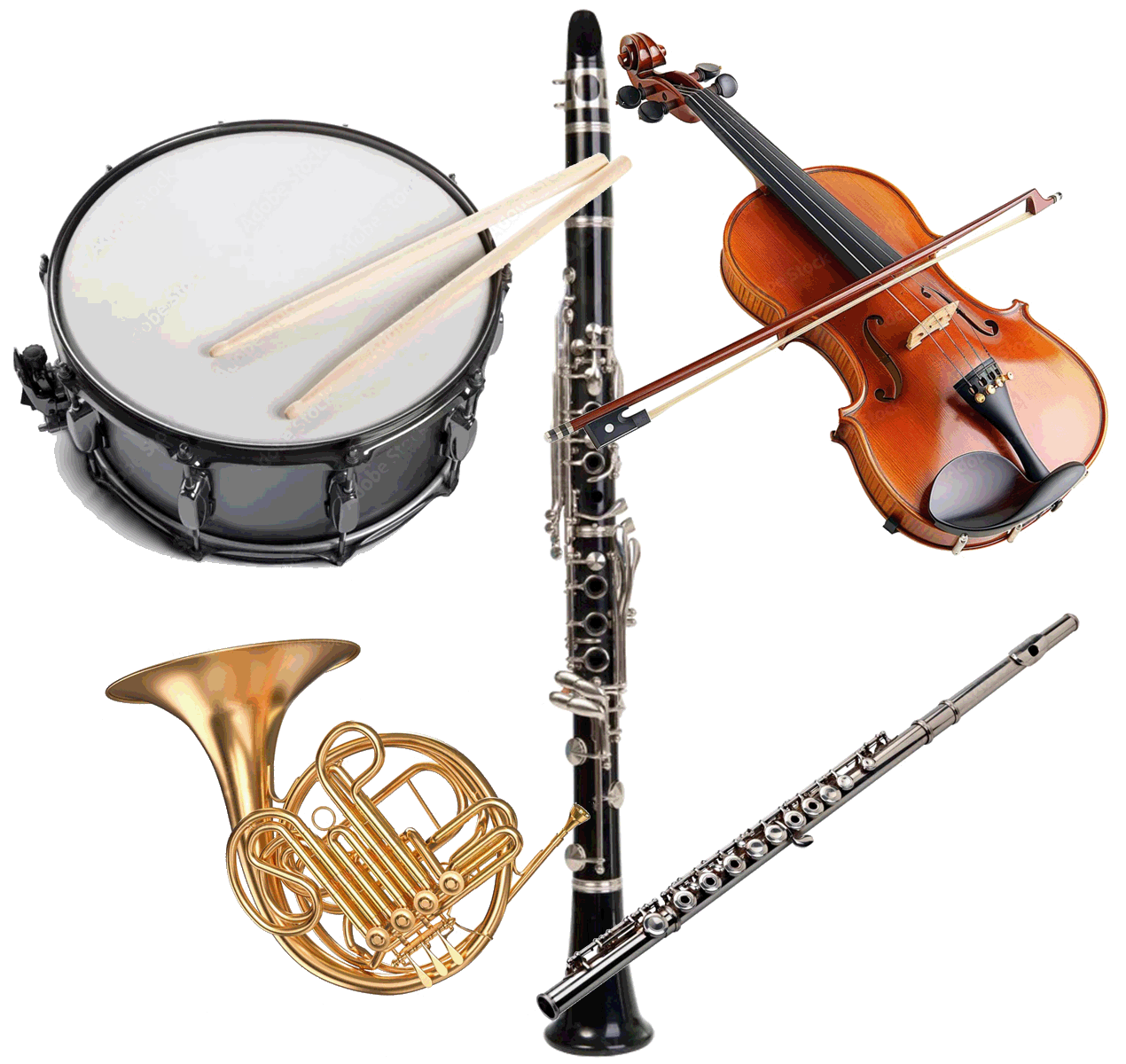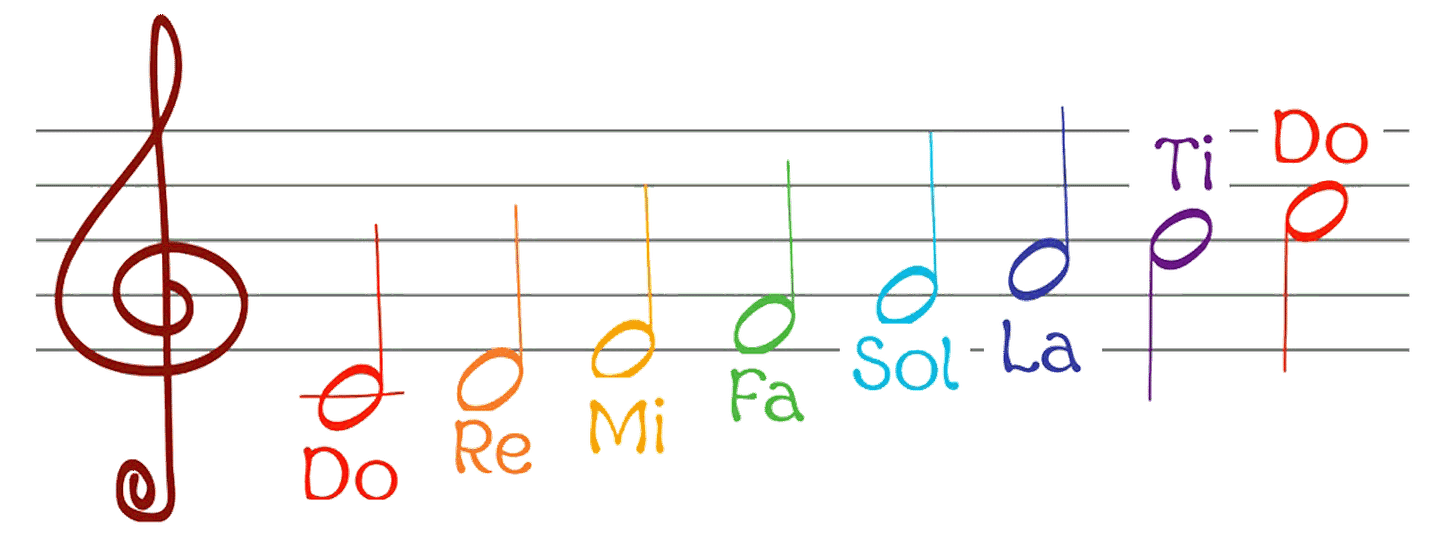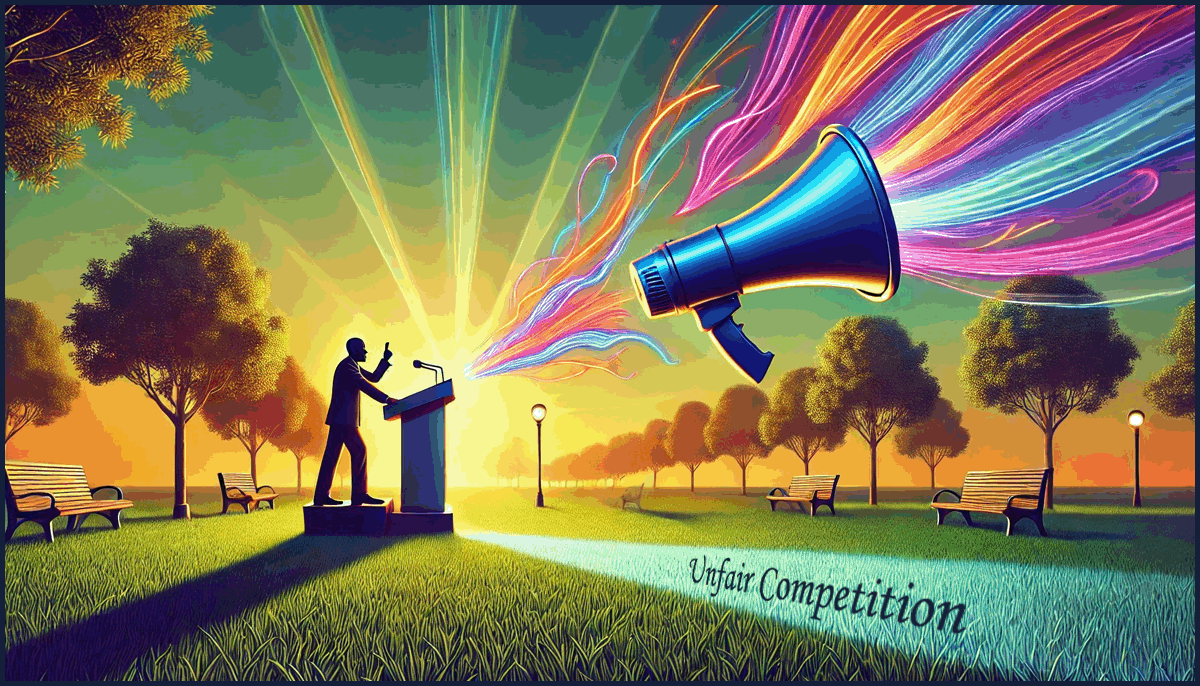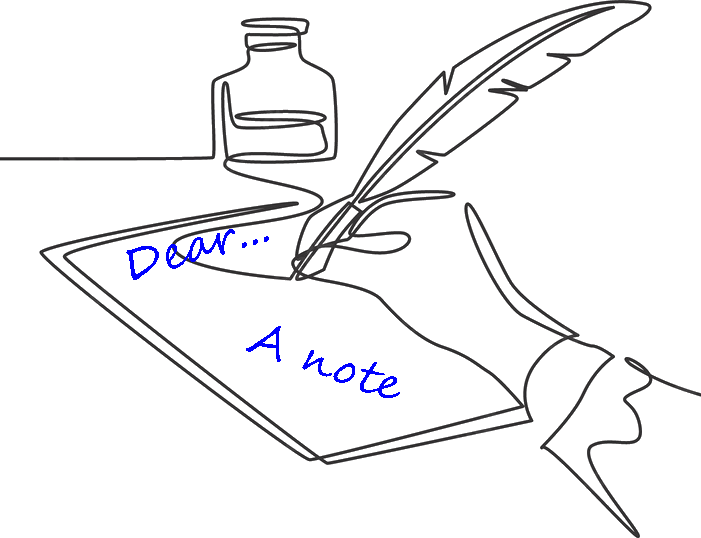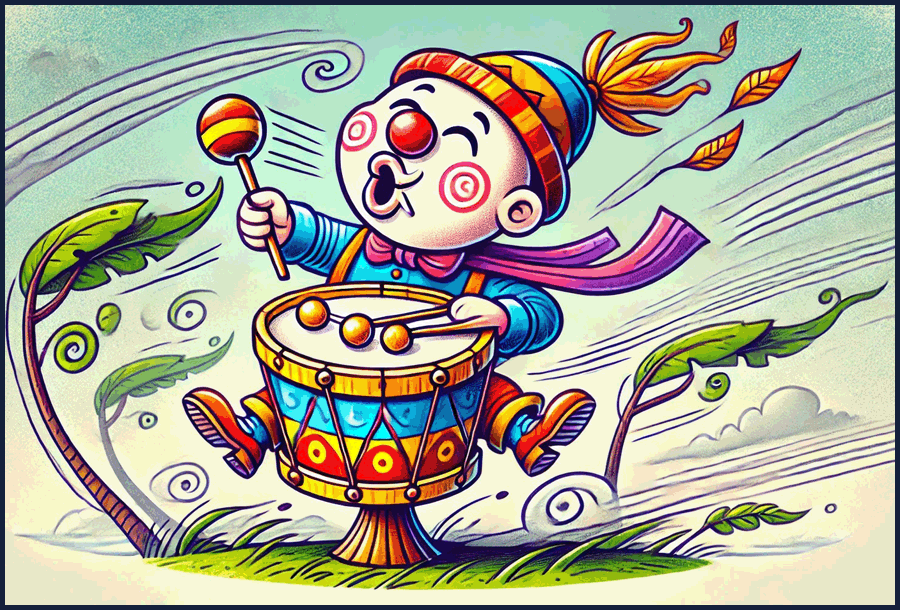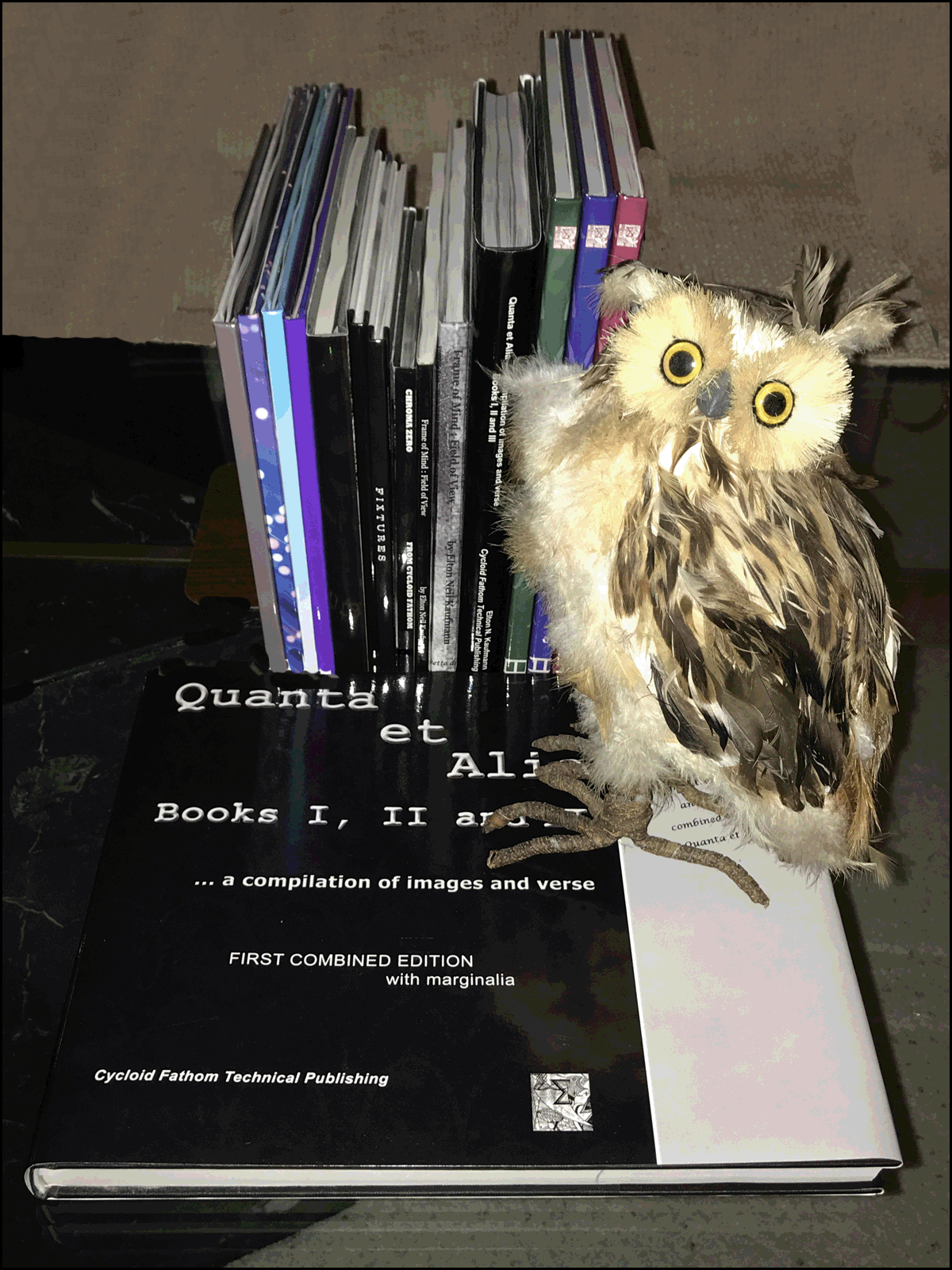FIRST: Dear Reader: I recommend a poem, to be found here, that I very much appreciated. I trust you will too.
[Skip to More Notes of Note.]
Tones and timbre
Gli strumenti musicali: Striking the right note is important. A sour note will draw the ire of the conductor and on-pitch neighbors. The mouthpiece of the brass and the reed of the woodwinds require a strong well-trained embouchure. Fingers, wrists, and forearms are challenged by the strings, not to mention the need for perfect posture, whether bowing or plucking. We don’t intend to harp on the details. Ruminations is no more than an appreciative audience of the beautiful sounds that emanate from these tools. The point to be made is that without the musician’s physical mastery, no such beauty can grace our lives.
But we haven’t yet mentioned mental mastery. Powers of concentration must also be an attribute. Multitasking must be another. Can we analogize reading the musical score and translating it into the dexterous physical operation of an instrument to reading and understanding a foreign language, especially one that employs an unfamiliar alphabet, and then formulating a reply? Perhaps we can, but imperfectly, because although music and speech share much of our brain power, music relies more on the right hemisphere and language more on the left.[1]
La voce è lo strumento: Have you ever heard an operatic virtuoso sing the major scale, “Do, Re, Mi, Fa, Sol, La, Ti, Do” in the key of G or C? It is inspiring. It may be just a way to exercise the voice, but it may as well be an opera in and of itself. Why? Because it is a human voice, tuned and tailored to vocalize, with clarity, precision, and beauty, what would otherwise be the routine, meaningless, babblings of an infant’s first syllables.
Genres: I find no rhyme or reason for genre preferences. Is it purely generational? Is it possible for one person to favor both classical and country, rap and rhapsody, without a schizophrenic breakdown? Can a symphony orchestra compete with a jazz trio? Are these silly questions? Perhaps. But a bit more thought is required, because we are headed for analogy land. Once we have experienced something, we somehow file that away under good or bad or indifferent. Several such experiences accumulate and stand ready to be retrieved when we’re faced with a choice of genre. The alternatives on our playlist may compete for primacy at any given time, but they are all there from which to choose. Eclectic tastes in music or in any other pursuit is a good thing. It’s a trait of a renaissance person.
My thoughts are far from unique. Others have long known that music is a microcosm of life.[1.5]
Rhythm: Our choices depend not only on the lyrics or a musician’s popular acclaim, but also on a subconscious sense of rhythm. Do we want upbeat and cheery or downbeat and gloomy? Do we have the energy for high tempo allegro or perhaps after a long day, a slower adagio. In any case, a common feature in the music is the beat, the syncopation, the underlying rhythm in any piece. If we don’t jump up to dance, we may at least tap our toes. Granted, a sweeping aria does not have a foot-tapping beat, but there is a rhythm in the performance, nonetheless. The same is the case for a rubato passage in a score or an a cappella vocal. Maybe that we have beating hearts creates not only a preference for rhythm, but a tendency to sense rhythm even when it is not written. I would not go so far as to claim “I hear singing and there's no one there” as did Russell Nype and Ethel Merman when vocalizing the Irving Berlin song “You're Just in Love” in the 1950 play, Call Me Madam.[2] But I do often find myself humming a tune absent external stimuli or thinking in iambic pentameter when straight prose will do.
Here's a thought:
Elections[3]
Through ballots cast, the people's voices sing,
A chorus loud in hope and fervent cheer.
The choice of leaders, future's steady spring,
An emblem bright of freedom we hold dear.The ballots mark the course of fate untold,
A nation's will enshrined in ink and seal.
Each vote a voice, its worth more pure than gold,
The heart of freedom bound by common zeal.The votes are cast, the nation's voice is clear,
A choice proclaimed, the future drawing near.
Volume and voracity: Can you hear me now?[4] The public is not generically hard of hearing, but often behaves as if messages do not get through. We could ask if the problem is the loudness or the truthfulness of a message. I submit that it’s not the decibels that matter. Whether fortissimo or pianissimo, a lie is a lie, and if the third pedal of the proverbial piano is depressed, it lingers in the ether until replaced by one of two things – a bigger lie or the facts. If the room has good acoustics, it matters not if you are in the front row or the back. Likewise, it does not matter if you are the first recipient or downstream of uncountable retweets. One clear well-documented simple factoid that acknowledges the “alternative facts’ that have circulated while presenting a more plausible perspective is the best we can do.
But that attempt must make it through to the listener/reader before there is even the slightest chance for a change of mind. That is where the Citizens United ruling by the US Supreme Court rears its lamentable head by allowing a flood of funds from corporations into political campaigns.[5] Whether or not “corporations are people,”[6] we must ask if individual speech that can’t be heard over other cacophonous speech, that is drowned out by a massively financed megaphone, is actually free. That change in campaign finance law inundated channels of limited bandwidth with one-sided information to the exclusion via saturation of alternative views. That version of perforce fortissimo is bad for the health of the public’s hearing. Were a physical megaphone in a public park drowning out a single person’s attempt to be heard from a literal soap box, the authorities would have none of that.[7]
More notes of note
If we can favor two or more genres of music, can we hold two or more thoughts and opinions in our minds at once? Why not? Multiple likes and dislikes beyond music may concern politics, child rearing, favorite places to visit, or meal preferences? We can maintain any number of simultaneous ideas, penchants, and predilections. There is rhythm associated with the non-musical ones too.
A waiter’s footfalls, a carpenter’s hammer, an infant’s gurgles, a candidate’s intonation, the clatter of a braking train as it approaches a station, and the tic and the toc of an old fashioned clock, are all rhythmic, when we really listen. Once we hear it, the impression is filed away in memory until we next need to make a choice. The facts with their rhythms are there to be retrieved.
The write and the wrong of it: The best communicators may strike a powerful note, when speaking or writing or silently gesturing. It would be wrong to assume that the content is the only factor that rings the right bell. It’s the underlying rhythm too that completes the picture. We find that what we usually associate with music also affects many other interests. We want harmony within and among our activities. We preach to the choir, and we strike chords (a well as notes). We can endure a crescendo of criticism or enjoy a chorus of compliments. We can jazz things up or tone things down. Well, you get the idea. If I were a truly annoying linguist, now would be the time to introduce the progeny of related Latin roots like notorious, notoriety, noteworthy, and notional, but we can refrain.
Notā bene: La coda
Think of it. If you sit at a piano and strike just one of the 88 keys, especially while depressing the sustain pedal, a mood is stuck as well. That ineffable feeling, different for the high and low notes, differs little from the momentary feeling that a phrase in a favorite poem or a glance from a loved one produces. And as these recur, the rhythm of it all cements into memory. Here I suggest that we try to sense the extant rhythm in a broader context, the lyrics and melody of the outside world, of our fellows and friends, of all the external impactful goings-on around us -- the hubbub. Let that feeling find the same cells in memory as were found by the middle C or G.
Too ethereal, too impractical, too much of a mind bender to be useful? Maybe. But the idea is to digest the notes of life that would otherwise confound us as if they were notes of a musical score, liked or disliked, but as an audience who can choose whether to jump up and dance or to merely tap our toes. We can lapse into word games by suggesting that we “be sharp” (b#) and “see” (C) things for what they really are, not what we are told they are by biased communicators.* We must underscore that is the key to participating productively in the politics of the day, to score points with the broader public, to setting rather than reacting to the tone of the times.
We may want to beat the drum over a misguided program or policy, but it will be more effective to choose a percussion instrument with a lighter touch, such as a tambourine or triangle, and to begin the dialogue with a grace note that foretells the coming of a more full-throated plea. If we fiddle while our proverbial Rome burns or whistle into the winds of change,[8,9] the music we make will not outlast the problems we want to solve.
There is no better validation of the relevance of the musical to the societal than the movement. It’s both a distinct self-contained part of a symphony with its own cadence and form and a collective attempt by a group to align policy or social values with a certain ideology. In both cases, first attempts at composition must be followed by reviewing and recasting until the melody and the message are well tailored for the intended audience. To fine-tune a fine tune is the ultimate goal. Depending on the musical piece and the societal goals, there will always be some folks for whom a movement is music to their ears.
*It is a happy coincidence that B-sharp and C are the same tone.
Credits: Image of Do Re Mi scale modified from https://www.vectorstock.com/royalty-free-vector/do-re-mi-musical-gamma-notes-vector-7399809.
Individual instrument images from Adobe Stock (#s French horn 756475778, Clarinet 640358548, Violin 844766610, Flute 747957279, and Drum 545026198).
Violin and “I Voted Today” sticker images from Adobe Stock #1061256708 and 883010620, resp.
Line drawing of Pen on Pad from Adobe Stock #359721665.
Whistling in the wind while beating a drum and Megaphone by OpenAI.com’s DALL-E image generator.
[1] https://www.nyu.edu/about/news-publications/news/2024/may/is-it-a-sound-of-music-or-of-speech--scientists-uncover-how-our-.html.
[1.5] https://substack.com/home/post/p-150498539 and https://www.vithefiddler.com/music-microcosm-life-quick-practice-tip/.
[2] https://www.songfacts.com/lyrics/russell-nype-and-ethel-merman/youre-just-in-love.
[3] “Elections” verse is an AI thought composed entirely by OpenAI.com’s ChatGPT at https://chatgpt.com/.
[4] The Verizon mobile phone ad slogan, "Can You Hear Me Now?" (2002 – 2011), was so memorable that it was added to the Oxford English Dictionary.
[5] https://www.brennancenter.org/our-work/research-reports/citizens-united-explained.
[6] “Corporations are people, my friend” was opined by 2012 US presidential candidate Mitt Romney at an April 2011 event in the US state of Iowa.
[7] We’ve used the megaphone metaphor a couple of times before. See Ruminations posts Print Run, 20 April 2023 and Déjà vu, 25 March 2024.
[8] https://www.history.com/news/did-nero-really-fiddle-while-rome-burned.
[9] https://en.wiktionary.org/wiki/whistle_in_the_wind.
[10] https://en.wikipedia.org/wiki/Political_movement and https://en.wikipedia.org/wiki/Movement_(music)
Nota Bene: Others may ruminate differently. But be warned: In my case, seeing or hearing something quite trivial -- a saying, a store clerk’s mannerisms, or bad grammar on a food product’s label – triggers a stream-of-consciousness extrapolation toward grander notions and generalizations. That is what often happens in these posts. ADDENDUM: Those subscribers who have been here for a while will have noticed that at times ruminations have veered into diatribes. I make no apology. I just want my readers to know that it’s quite intentional. When events come close to making the ‘blood boil,’ that discontent bubbles up here.
Disclaimer: Any and all opinions expressed here are my own at the time of writing with no expectation that they will hold beyond my next review of this article. Opinions are like a river, winding hither and yon, encountering obstacles and rapids, and suffering turbulent mixing of silts from its depths and detritus from its banks. But just as a river has its clear headwaters and a fertile delta, so do opinions, notwithstanding any intervening missteps and uncertainties.
Reminder: You may visit the Cycloid Fathom Technical Publishing website at cycloid-fathom.com and the gallery at cycloid-fathom.com/gallery.
Forthcoming posts (unless life intervenes)
The Twenty January Prevarication
…Not going to fall for rumor and fake news
20 January 2025
Natural motifs – the wonder
…Looking around
27 January 2025
Algorithms & IT
…Nothing new under the Sun
3 February 2025




